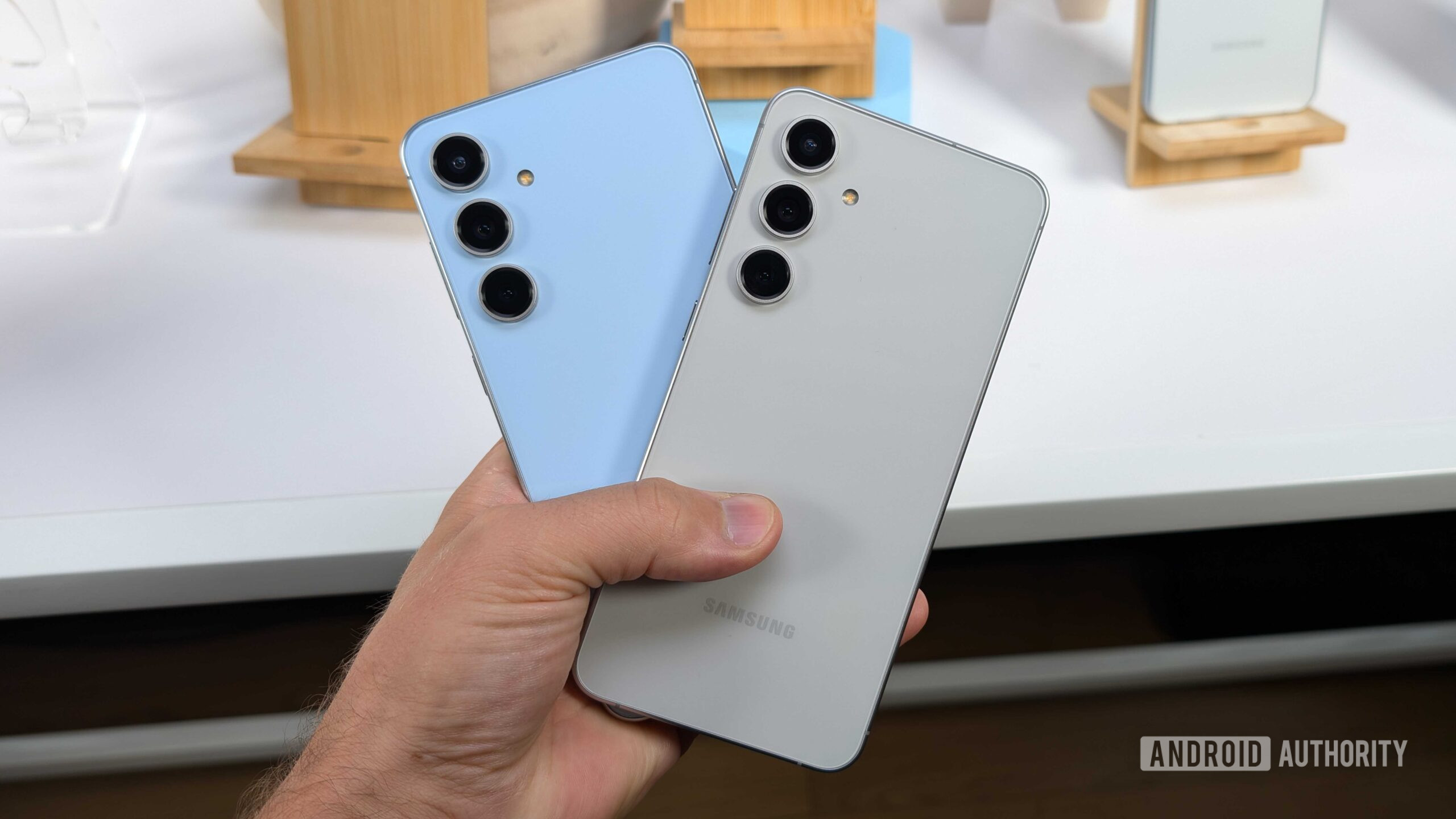The new Samsung Galaxy S24 FE marks a significant change for US consumers: it’s powered by the Samsung Exynos 2400e chipset. The 2400e is very similar to the regular Exynos 2400 found in global variants of Samsung’s Galaxy S24 flagship but features a number of key differences to the Snapdragon 8 Gen 3 that US-based S24 consumers will be more familiar with, including in the performance department.
If you’re intrigued by what’s new with this chipset and how it performs, we’ve run the Galaxy S24 FE through our benchmark suit to find out. We also grabbed Exynos and Snapdragon versions of the Galaxy S24 for comparison. Let’s dive in.
Samsung Galaxy S24 FE benchmarks
When it comes to CPU and general system performance, there’s not a lot between these three phones. The Exynos Galaxy S24 is just 7% faster than the S24 FE in GeekBench 6’s single-core, 5% faster in multi-core, and only 3% faster in PCMark’s varied Work 3.0 workload. The reason for this is a slightly slower CPU clock speed. The Exynos 2400e drops its biggest Cortex-X4 core from 3.20GHz to 3.11GHz — a roughly 3% drop. It’s also possible the scheduler doesn’t run all the cores at their peak clocks for as long.
The Snapdragon Galaxy S24 has a bigger gap, scoring 15% higher in single-core and 12% faster in multi-core tests. PCMark also shows a 9% uplift, a small boost but hardly a night and day difference for app responsiveness. Qualcomm’s chipset is the most premium option, at least as far as performance is concerned, but the Exynos 2400e is very comparable at just a fraction of the cost.
Your apps won’t notice a difference running on the 2400e.
Turning to graphics performance, courtesy of 3DMark’s test suite, the Exynos 2400e again appears to be a downclocked version of the Exynos 2400. Samsung hasn’t divulged specific numbers, only mentioning a CPU downclock. Still, the flagship chip’s take on the Xclipse 950 GPU is, on average, 11% faster than the FE’s across all the tests we ran.
The Snapdragon 8 Gen 3 Galaxy S24 has a far more substantial 35% lead in standard rasterization and 12% lead in ray-tracing benchmarks. For US audiences who have only experienced Snapdragon before, there’s quite a substantial drop in performance between the flagship and the FE.
However, that’s just a small part of the story. While peak performance is lower, the Galaxy S24 FE and its Exynos 2400e chip offer much improved sustained performance than both standard S24 models, owing to slower heat build-up.
Lower clocks produce improved sustained gaming performance for the Galaxy S24 FE.
Over a 20-minute WildLife stress test, the FE’s temperature averaged 41.2°C compared to 44.9°C for the Exynos S24 and 42.2°C for the Snapdragon version. As such, it produced a stability score of 71.9% versus 56.5% and 54.2%, respectively.
The net result is sustained performance that ends up in roughly the same ballpark as the Snapdragon 8 Gen 3 and it actually ends up outpacing it with ray-tracing enabled. So, while US customers may see temporarily higher frame rates with the standard Galaxy S24, the FE will hand in very similar performance over those longer AAA gaming sessions. That’s a big win for the budget model.
Samsung Exynos 2400e verdict

While the Snapdragon chip inside the US Galaxy S24 offers some extra performance, it’s not miles out in front. Better still, the Galaxy S24 FE is right in the mix with the global version of Samsung’s latest flagship.
It’s not quite as nippy for gaming, but Samsung’s choice to prioritize slightly lower performance ends up meaning less heat and better-sustained gaming results. A part of me thinks Samsung may have pushed the original chip a bit too far to close the gap with the Snapdragon variant. That’s not a concern with the FE, and perhaps the 2400e sits a little more in that performance/heat/power sweet spot.
Virtually the same performance for just $650? The FE is a great deal.
Regardless, Samsung states that, besides the clock speed differences, the Exynos 2400e is the same as the Exynos 2400. This means the same 5G, Wi-Fi, on-device Galaxy AI processing, ray-tracing, and other features that made for a flagship-tier chip just earlier this year. With prices starting at $650, the Galaxy S24 FE offers serious flagship performance and many other features at just a fraction of the price. What’s not to love?